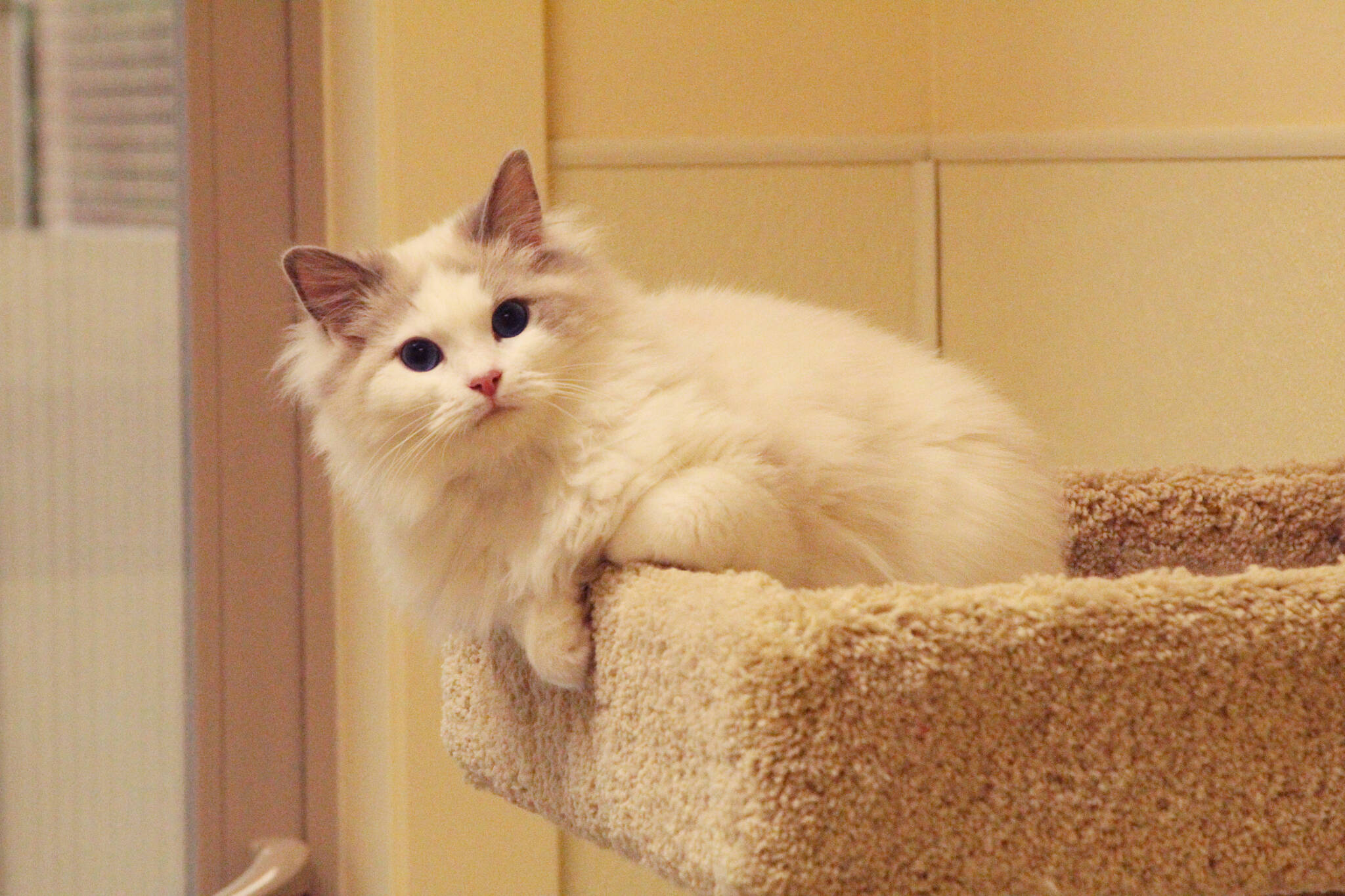Island County Public Health officials took the unusual step this week of warning the public about a parasitic outbreak on the North Whidbey property of a woman accused of animal cruelty.
The agency reported that giardia, a parasite that causes the diarrhea-inducing, communicable disease giardiasis, was found in dozens of animals rescued Dec. 24 from a property on Hastie Lake Road, which is now listed for sale.
At the same time, dogs and cats rescued from the property by Whidbey Animals’ Improvement Foundation, or WAIF, have been treated for giardiasis and are beginning to be available for adoption at the animal shelter.
The property owner, 58-year-old Kristi L. Finch, is facing multiple charges of animal cruelty in Island County Superior Court. Deputies investigated after a witness reported that two horses were dead on her property.
In all, 11 horses, 24 dogs, 31 cats, two pigs, four chinchillas and some rabbits from Finch’s property were seized, surrendered or given away, according to a deputy’s report.
Public Health cautioned those who have adopted animals from Finch, acquired items from the property during a March 18-19 garage sale, or visited the property at any time to monitor themselves for the symptoms of giardiasis. Both animals and people are susceptible to the illness.
People exposed to giardia, Public Health explained, may experience mild or severe diarrhea, gas, stomach cramps, nausea or dehydration. Some people experience no symptoms at all. Fever is rarely present, according to Island County Public Health officials. Infected animals can exhibit the same symptoms.
Anyone who is exhibiting symptoms of the illness should consult with their health care provider and call Island County Public Health at 360-679-7350. Identities will remain confidential.
Oak Harbor veterinarian Donna DeBonis, who has been helping county officials with the situation, explained that giardia proliferates in unsanitary conditions, especially where animals are crowded together and feces are not cleaned away. The parasite can easily be spread and can contaminate surfaces and even well water in some cases.
DeBonis said she’s been told that the county is conducting tests of groundwater, which takes time.
DeBonis said giardiasis isn’t rare. She saw some cases of giardiasis in animals in her clinic days, as well as when she served in the Army in Afghanistan.
WAIF, the county’s animal shelter, took in four chinchillas, 31 cats and 24 dogs from the property. Finch was operating a puppy and kitty mill and breeding Australian shepherds and ragdoll cats, court papers explain.
Donna Dunn, shelter manager, said all of the animals suffered from giardia exposure when they arrived at the shelter.
Treatment for the illness is pretty straightforward for dogs and cats, she said, but the hardest part is the cleaning. Kennels and other areas have to be sanitized in a specific ways that take time.
In addition to suffering from diarrhea due to the parasitic disease, many of the animals were severely underweight and dehydrated, Dunn said. Some of the dogs have scarring around their snouts from sticking their noses out of wire cages, according to court documents.
The rescued dogs and cats tend to be timid, Dunn said, and it’s obvious they haven’t been socialized. Nonetheless, they are warming up to people as a result of plenty of attention from staff and volunteers.
“I think they know they are safe now,” Executive Director Cinnamon Hudgins said.
She explained that the facility, which was built in 2015, was designed to handle large hoarding cases, but this is the first time WAIF has dealt with such a situation since it opened.
Thursday afternoon, a 4-year-old Australian shepherd named Spree was enjoying being adored by a group of staff at the WAIF facility in Coupeville. She was a little timid, especially when a stranger started taking photos, but was undeniably affectionate and sweet, snuggling up to people sitting on the ground.
In a nearby cat room, several of the beautiful ragdoll cats with perfectly groomed fur were hanging out together.
Hudgins explained that the 15 cats and 11 dogs that Finch agreed to surrender will become available for adoption as they are deemed to be healthy and test negative for giardia. In the latest test, three dogs and two cats still tested positive.
Debonis, the sheriff and many others have acknowledged WAIF for all the group has done to protect and nurture the animals that were caught in the tragic situation. But taking care of a large group of animals is an expensive undertaking.
Hudgins said people who want to help can donate on the nonprofit group’s website at https://waifanimals.org.



